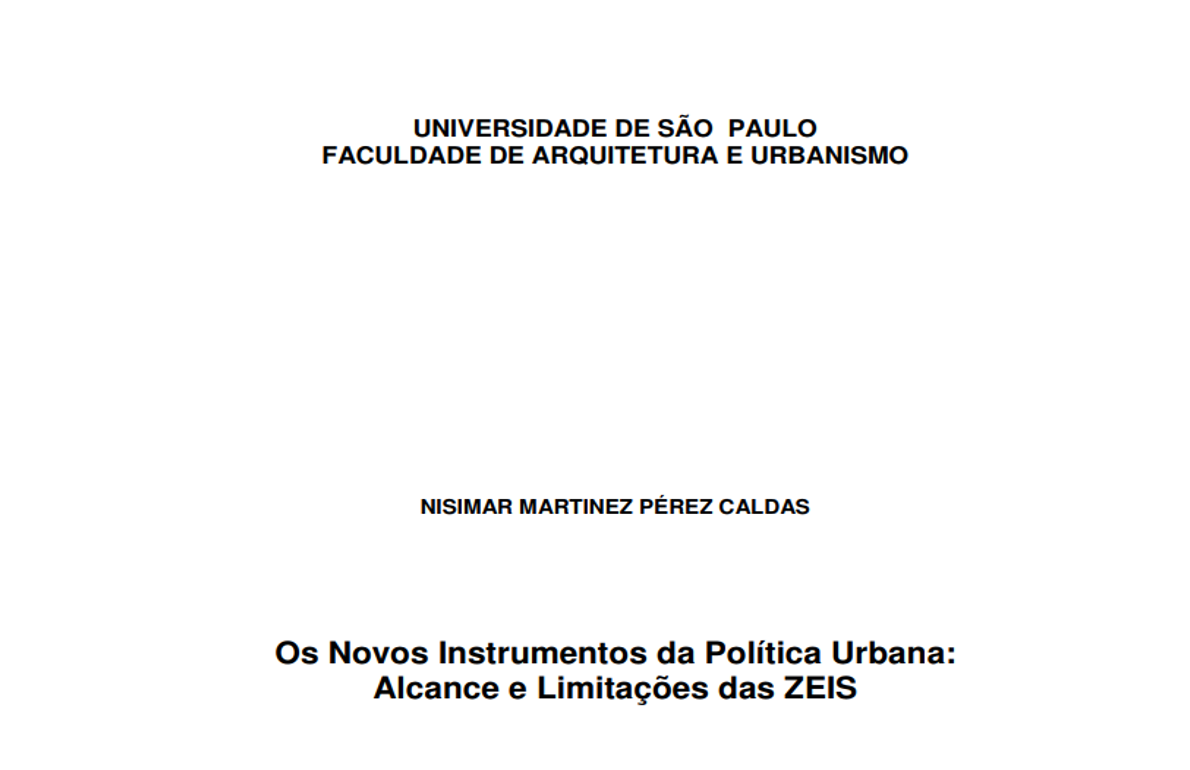A Universidade de São Paulo (USP) é uma universidade pública, mantida pelo Estado de São Paulo e ligada à Secretaria de Estado de Desenvolvimento Econômico, Ciência e Tecnologia.
Members:
Resources
Displaying 11 - 15 of 22PROJETO E GESTÃO NA METRÓPOLE CONTEMPORÂNEA – Um estudo sobre as potencialidades do instrumento operação urbana consorciada à luz da experiência paulistana
Esta tese discute a operação urbana consorciada como instrumento de parceria entre o poder público e o setor privado para a promoção de projetos urbanos. O trabalho parte da hipótese de que a viabilização de intervenções urbanísticas por meio do instrumento estaria limitada  aplicação parcial da legislação e não  consecução de parcerias efetivas. Em 2001, a regulamentação nacional da operação urbana consorciada pelo Estatuto da Cidade trouxe inovações importantes no sentido de recuperar a essência do instrumento que aparentemente não foram assimiladas de forma equivalente.
Surface rights
In many cities of Brazil, social inequality is illustrated by violence, poverty, and unemployment located next to luxurious residential towers and armored passenger cars. In the face of this situation, the National Movement of Urban Reform encouraged the inclusion of the social function of property in Brazil's new constitution of 1988. Surface rights represent an urbanistic instrument in the city statute that is best aligned to the constitutional principles and urban policies.
Os Novos Instrumentos da Política Urbana: Alcance e Limitações das ZEIS
Tese apresentada à Faculdade de Arquitetura e Urbanismo da Universidade de São Paulo para obtenção do título de Doutora em Arquitetura e Urbanismo.
The city and the road: the urban transformation in the region of Cotia throughout the Raposo Tavares highway
The study of the urban transformation of Cotia, located in the periphery of the metropolis, aims the documentation of the region urban development, starting on the 18 century, and its analysis, taking São Paulo city as reference. This analysis was elaborated from the social-economics and spatial relations of the urban development, from the city adequation to the metropolitan area planning, from the linearity that the Raposo Tavares highway imposes to the urban composition and the characteristics of the middle-class residence condominiums determined to the territory.
Globalization and the built environment in metropolitan São Paulo
This study investigates the process of globalization over the past decades as a process of technological progress in computer science and communication and as transformation in the world economic order. It identifies the political and economic causes of globalization and their impact on the social sphere of developing nations. In past decades social inequality has widened in these countries and their large cities. This article also identifies lifestyle changes in the city of São Paulo and their consequences in urban land occupation and use.




